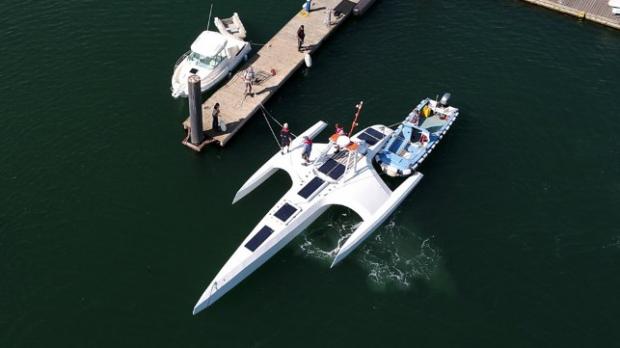
Breaking News
 Closing in on How Charlie Kirk Was Assassinated
Closing in on How Charlie Kirk Was Assassinated
 Here's a little song I just wrote. Dedicated to Al Gore.
Here's a little song I just wrote. Dedicated to Al Gore.
 Judge Blocks Executive Order Tightening Voter-registration Requirements
Judge Blocks Executive Order Tightening Voter-registration Requirements
 ALEX JONES' EXCLUSIVE EPSTEIN DOJ MEGA DOCUMENT DUMP ANALYSIS:
ALEX JONES' EXCLUSIVE EPSTEIN DOJ MEGA DOCUMENT DUMP ANALYSIS:
Top Tech News
 Critical Linux Warning: 800,000 Devices Are EXPOSED
Critical Linux Warning: 800,000 Devices Are EXPOSED
 'Brave New World': IVF Company's Eugenics Tool Lets Couples Pick 'Best' Baby, Di
'Brave New World': IVF Company's Eugenics Tool Lets Couples Pick 'Best' Baby, Di
 The smartphone just fired a warning shot at the camera industry.
The smartphone just fired a warning shot at the camera industry.
 A revolutionary breakthrough in dental science is changing how we fight tooth decay
A revolutionary breakthrough in dental science is changing how we fight tooth decay
 Docan Energy "Panda": 32kWh for $2,530!
Docan Energy "Panda": 32kWh for $2,530!
 Rugged phone with multi-day battery life doubles as a 1080p projector
Rugged phone with multi-day battery life doubles as a 1080p projector
 4 Sisters Invent Electric Tractor with Mom and Dad and it's Selling in 5 Countries
4 Sisters Invent Electric Tractor with Mom and Dad and it's Selling in 5 Countries
 Lab–grown LIFE takes a major step forward – as scientists use AI to create a virus never seen be
Lab–grown LIFE takes a major step forward – as scientists use AI to create a virus never seen be
 New Electric 'Donut Motor' Makes 856 HP but Weighs Just 88 Pounds
New Electric 'Donut Motor' Makes 856 HP but Weighs Just 88 Pounds
 Donut Lab Says It Cracked Solid-State Batteries. Experts Have Questions.
Donut Lab Says It Cracked Solid-State Batteries. Experts Have Questions.
What a difference 400 years makes! AI 'Mayflower' will make groundbreaking crew-less...

An autonomous version of the historical Mayflower ship that's powered by artificial intelligence (AI) is set to make is maiden voyage across the Atlantic next month.
On April 19, Mayflower Autonomous Ship (MAS) will depart from Plymouth, England and arrive at Plymouth, Massachusetts about 3,000 miles and two weeks later.
The original ship, which transported 102 passengers known as the Pilgrims, took 10 weeks to reach its destination in the autumn of 1620.
The new 50-foot ship, which won't carry any human passengers or even crew, will roughly take the same route as its predecessor.
When they set sail from Plymouth, England, on September 16, 1620, the Pilgrims were escaping religious persecution and sought to establish a settlement in the New World.
Just over 400 years later, the MAS will gather critical scientific data about the ocean', powered by AI and solar energy.
MAS was first revealed in 2017 and was supposed to sail last September to mark the anniversary before plans were delayed due to coronavirus.
It's been made in partnership with University of Plymouth, autonomous craft specialists MSubs, tech firm IBM and public charity Promare which promotes marine research and exploration throughout the world.
'The single biggest challenge is the ocean itself,' said Brett Phaneuf, co-founder of ProMare.
'No ship has ever been built that can survive whatever the ocean could throw at it.'
With no human captain or onboard crew, MAS uses AI and automation to traverse the ocean in its quest for data and discovery.
Built in Poland to ProMare's specifications, the 5-ton, 50-foot-long vessel incorporates many advanced marine architecture features, all designed to withstand the stresses of extended trips at sea.



